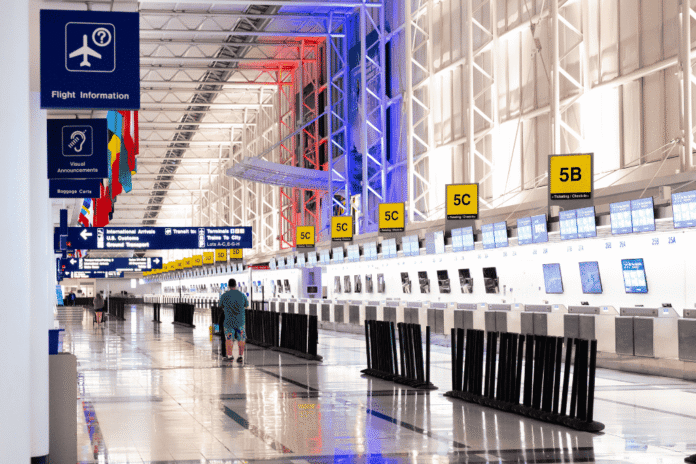BRUSSELS/BERLIN, Sept 21 – Europe’s busiest aviation hubs faced a turbulent weekend as airports in Brussels, Berlin, and London struggled to restore stability after a cyberattack crippled their automated check-in systems. The attack, which targeted Collins Aerospace, a key provider of airline check-in and boarding software owned by RTX, threw passenger processing into disarray and forced airlines to rely heavily on manual procedures.
By Sunday evening, officials in Berlin and London’s Heathrow reported that operations were gradually stabilizing, though not without continued disruption. Brussels, however, remained deeply affected and went as far as asking carriers to cancel half of Monday’s scheduled departures to prevent gridlock and last-minute chaos for travelers.
Extent of the Disruption
On Friday, hackers infiltrated Collins Aerospace’s widely used MUSE platform—a software relied upon by several airlines for check-in and boarding operations. The breach caused severe bottlenecks at check-in counters, triggering widespread flight delays, cancellations, and long queues across impacted airports.
- Brussels Airport reported the most significant fallout. Out of 257 departures scheduled for Sunday, 50 flights were cancelled, while Saturday had already seen 25 cancellations out of 234 planned departures.
- Heathrow Airport, Europe’s busiest hub, managed to keep most flights running but acknowledged “ongoing recovery efforts” as airlines and passengers contended with occasional longer wait times.
- Berlin Brandenburg Airport said the worst had been contained, though passengers were warned to expect longer lines at check-in, boarding, baggage drop, and reclaim areas. Officials described delays as “within the range of a normal operating day” thanks to manual workarounds.
Passenger Experience
For many travelers, the impact of the cyberattack depended largely on whether they had checked in online in advance. One passenger flying from Brussels noted:
“For me, it was business as usual. But those who hadn’t checked in digitally or had bags to drop off seemed to face long waits.”
The reliance on manual check-in systems, while effective at keeping operations partially functional, inevitably slowed processes and exposed the fragility of digital-first aviation systems when targeted by malicious actors.
Collins Aerospace Response
In a statement early Monday, Collins Aerospace confirmed it was “in the final stages of completing updates” necessary to restore full service at the four impacted airports. The company emphasized it was working closely with both airport operators and airline customers to deploy a secure, updated version of its software.
RTX, its parent company, had earlier acknowledged that the cyberattack specifically disrupted the MUSE platform and stressed that airports could mitigate the problem with manual fallback procedures until full systems recovery was achieved.
A Broader Cybersecurity Warning
This incident is the latest in a growing wave of cyberattacks targeting critical industries across Europe. Regulators confirmed they were investigating the origins of the hack, which comes on the heels of recent breaches in healthcare, automotive, and retail:
- A cyberattack at Jaguar Land Rover forced a halt in vehicle production.
- A separate breach at Marks & Spencer reportedly caused financial losses running into hundreds of millions of pounds.
These cascading attacks underscore the vulnerability of highly digitalized operations and highlight the urgency for stronger, resilient cybersecurity measures across sectors that underpin daily life.
Aviation Data Confirms the Trends
Independent analysis by aviation data provider Cirium painted a clearer picture of the weekend’s disruptions:
- Heathrow experienced low levels of delay.
- Berlin saw moderate disruption.
- Brussels continued to face significant operational delays.
The disparity reflects both the scale of dependence on Collins Aerospace’s software at each location and the capacity of airports to pivot effectively to manual systems.
Also check: Top Airlines in India
As Europe’s aviation network braces for another week of heavy traffic, airports, airlines, and regulators are working around the clock to ensure stability while preparing for the possibility of further cyber threats.
Source: Reuters

